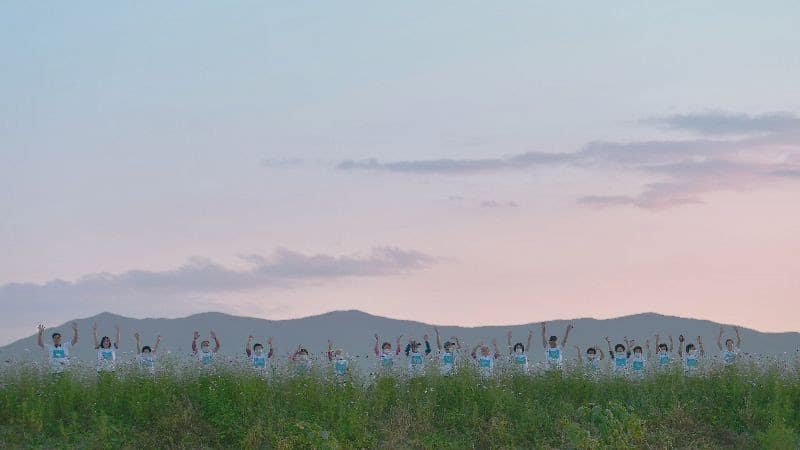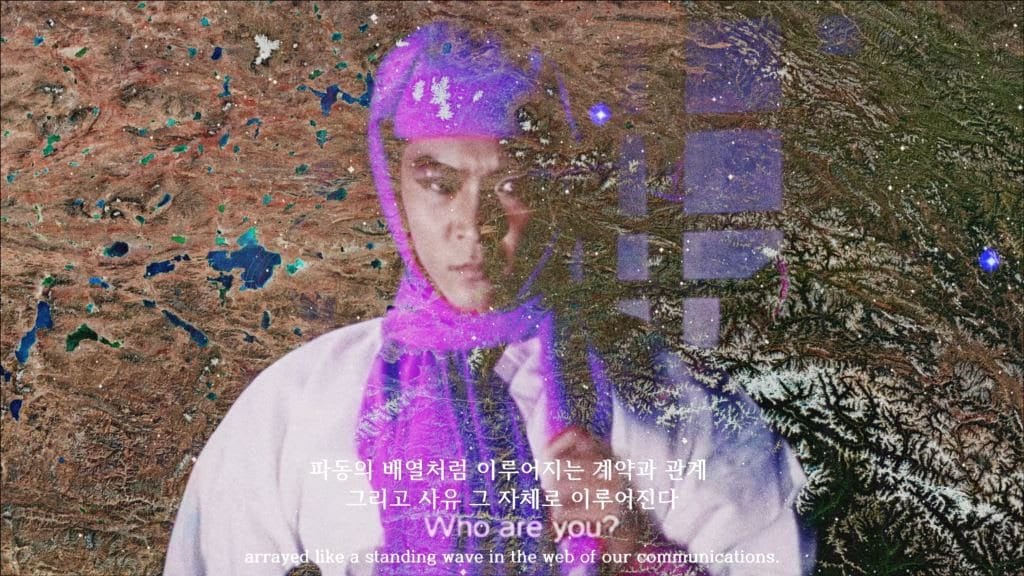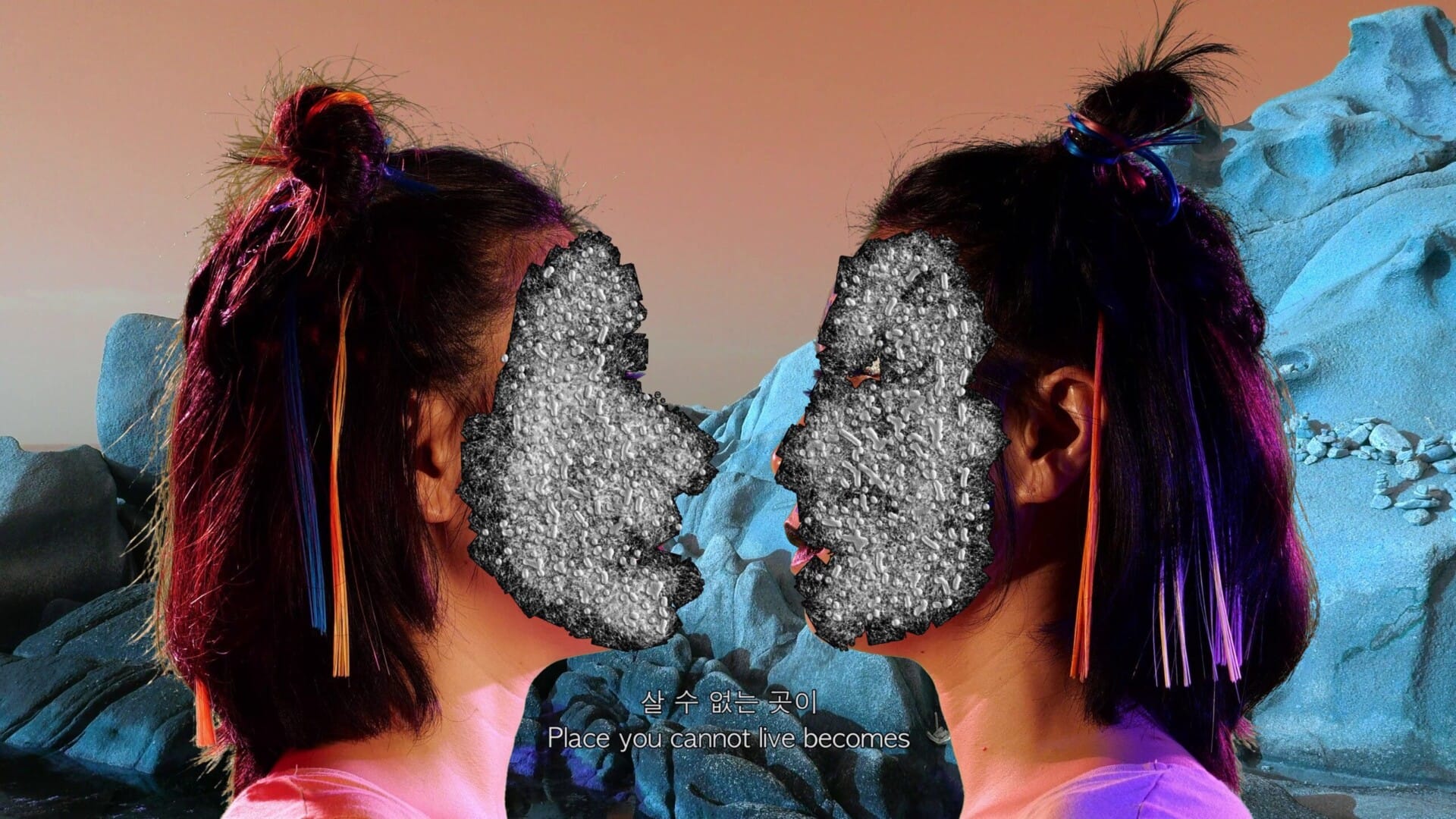The Korean Cultural Centre UK is delighted to present A Viewing Room, an artist film programme featuring new and recent video works by eight contemporary Korean artists and artist groups, running from 6 April – 31 May 2021. Following the one-year anniversary of the Covid-19 outbreak officially being declared a pandemic, the works’ themes and concerns – psychological wellbeing, social solidarity, care systems, reconfiguring embodiment in relation to our environment, and the transition from offline to online – appear more relevant than ever.
Participating artists include Jeongyoon AHN, Jeamin CHA, CHA Ji Ryang, Taey IOHE, Jooyeon LEE, Minhwi LEE & Yun CHOI, RHO Jae Oon, and the Rice Brewing Sisters Club. Each artist or artist group has been nominated by a member of the exhibition’s curatorial committee, made up of Jaemin Cha (Korean Cultural Centre UK), Annie Jael Kwan (Asia–Art–Activism), Sun Park (Lux), and Adeena Mey (Afterall).

A Viewing Room begins with a series of works focusing on physiological states, and how these are impacted during challenging times. In Jeongyoon Ahn’s film Onlooker (2016), the artist and her collaborator Misun Ahn share dreams about loss and death, as part of a collective grieving practice. As their subconscious memories unfold on paper as drawings, it leads the two friends to unpack larger questions around the relationship between life and death. Meanwhile, reflecting on care systems, Jooyeon Lee’s performance film Back to Back (2020) considers an era in which society is defined by either needing or providing care.
Offering a critique of the contemporary psychological landscape, Jeamin Cha’s Sound Garden (2019) alternates between scenes of large trees being transported and interviews with South Korean female mental health counsellors who reflect on counselling’s ambivalence and complexity. The film highlights the discrepancy between these cultivated trees, designed to thrive in urban surroundings, and the human spirit, shaped and affected by our modern values and evolving social environments. In parallel, set within an abandoned, rural village of elderly residents, Cha Ji Ryang’s recent work After Life (2020) acts as a meditation on the mundanity of human life, and collective and social solidarity.
Responding to the current dislocations of our bodies from the outside environment, Taey Iohe’s experimental autofictional video A great circle with no rim (2021) follows the new runner’s embodied ambivalence and address towards gendered, raced and classed public space in an era of the pandemic where space and time are placed on hold. Reconnecting to notions of ‘home’, The Rice Brewing Sisters Club share their research-led work Cheopcheopdamdam Iyagigeuk (2020), a collective performative and poetic expression of reconnecting to the land that nourishes us.

Elsewhere in the exhibition, artists reflect on the social (and political) effects of today’s hyper-connected, globalised and digital world – a state we exist in now more than ever. Minhwi Lee and Yun Choi present their collaborative project Viral Lingua (2018), commissioned by the Busan Biennale in 2018. Inspired by viral marketing and its vast dissemination and duplication of information online, the artists compose six songs and music videos which reveal complex social layers of contemporary Korean society. Similarly, Rho Jae Oon’s works deal with the general methods through which visual cultures might be recognised and accommodated within society in the digital era.
Through these portraits and observations of contemporary human states, A Viewing Room invites the viewer to consider how society may change or evolve in a post-pandemic world. Jaemin Cha, visual arts curator at the Korean Cultural Centre UK, expands:
A Viewing Room sheds light on how art is able to reveal societal changes, and, at the same time, spread a collective sense of belonging and solidarity. During these difficult times and despite geographical constraints, the KCCUK looks to continue its transnational and trans-institutional support for Korean artists. Through our collaborations with this curatorial committee from diverse organisations, we hope to echo that same sense of solidarity within the programme itself.
